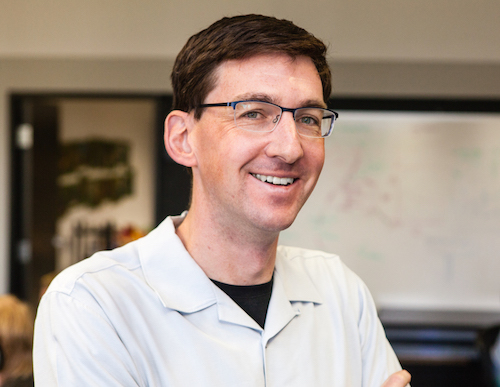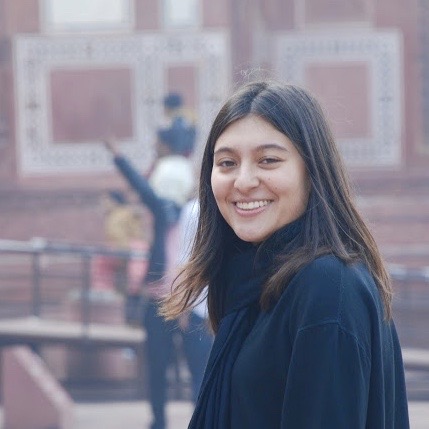|
| Mar 28 |
- Lecture: Chris Potts (in person and on Zoom)
|
- Video: Course overview
[slides]
- Notebook: Course set-up
- Notebook: Jupyter notebook tutorial
- Notebook: NumPy tutorial
- Notebook: PyTorch tutorial
|
- Levesque 2013
- Manning 2015
- Potts 2019
- Video: The challenge and promise of artificial intelligence
- Podcast: The ELIZA effect (99% Invisible)
|
|
|
| Mar 30 |
- Working session (team available in person and on Zoom)
|
- Video: High-level goals and guiding hypotheses
[slides]
- Video: Matrix designs
[slides]
- Video: Vector comparison
[slides]
- Video: Basic reweighting
[slides]
- Notebook: Designs, distances, basic reweighting
- Video: Dimensionality reduction
[slides]
- Notebook: Dimensionality reduction and representation learning
- Video: Retrofitting
[slides]
- Notebook: Retrofitting
- Video: Static representations from contextual models
[slides]
- Notebook: Static representations from contextual models
|
- Turney and Pantel 2010
- Smith 2019
- Mikolov et al. 2013
- Pennington et al. 2014
- Faruqui et al. 2015
- Bommasani et al. 2020
|
- Word relatedness assignment and bakeoff: due Apr 11, 3:15 pm Pacific
[overview video]
- Quiz on course policies: due Apr 11, 3:15 pm Pacific
- Quiz 1: due Apr 11, 3:15 pm Pacific
|
| Apr 4 |
|
| Apr 6 |
|
|
| Apr 11 |
- Special event: Conversation with Rishi Bommasani
|
- Video: Overview of supervised sentiment analysis
[slides]
- Video: General practical tips
[slides]
- Video: Stanford Sentiment Treebank
[slides]
- Notebook: Overview of the Stanford Sentiment Treebank
- Video: DynaSent
[slides]
- Video: sst.py
[slides]
- Video: Hyperparameter search and classifier comparison
[slides]
- Video: Feature representation
[slides]
- Notebook: Hand-built feature functions
- Video: RNN classifiers
[slides]
- Notebook: Dense feature representations and neural networks
- Video: Overview of contextual representation models
[slides]
- Video: Transformers
[slides]
- Video: BERT
[slides]
- Video: RoBERTa
[slides]
- Video: ELECTRA
[slides]
- Video: Practical fine-tuning
[slides]
- Notebook: Fine-tuning large language models
|
- Pang and Lee 2008
- Socher et al. 2013
- Goldberg 2015
- Tutorial videos on supervised learning
- Stanford AI Lab Deep Learning Tutorial
- McCann et al. 2017
- Peters et al. 2018
- Vaswani et al. 2017
- Devlin et al. 2018
- Liu et al. 2019
- Yang, Dai, et al. 2019
- Clark et al. 2019
|
- Supervised sentiment assignment and bakeoff: due Apr 20, 3:15 pm Pacific
[overview video]
- Quiz 2: due Apr 20, 3:15 pm Pacific
|
| Apr 13 |
|
| Apr 18 |
- Special event: Conversation with Douwe Kiela
|
|
| Apr 20 |
- Special event: Conversation with Adina Williams (on Zoom)
|
- Video: Overview of grounded language understanding
[slides]
- Video: Speakers
[slides]
- Video: Listeners
[slides]
- Video: Varieties of contextual grounding
[slides]
- Video: The Rational Speech Acts model
[slides]
- Video: Neural RSA
[slides]
- Notebook: Pragmatic color describers
- Video: Overview of NLU and Information Retrieval
[slides]
- Video: Classical IR
[slides]
- Video: Neural IR, part 1
[slides]
- Video: Neural IR, part 2
[slides]
- Video: Neural IR, part 3
[slides]
|
- Lewis et al. 2017
- Golland et al. 2010
- Andreas and Klein 2016
- Monroe et al. 2017
- Tellex, Knepper, et al. 2014
- Vogel et al. 2014
- Brown et al. 2020
- Gao et al. 2020
- Khattab and Zaharia 2020
- Khattab et al. 2021
|
-
Color reference assignment and bakeoff [overview video]
OR
Few-shot OpenQA with retrieval assignment and bakeoff [Colab copy;
Github copy; overview video]: due May 2, 3:15 pm Pacific
- Quiz 3: due May 2, 3:15 pm Pacific
|
| Apr 25 |
- Special event: Conversation with Omar Khattab (on Zoom)
|
| Apr 27 |
|
|
| May 2 |
- Special event: Conversation with Richard Socher (on Zoom)
|
- Video: Overview of methods and metrics
[slides]
- Video: Classifier metrics
[slides]
- Video: Natural language generation metrics
[slides]
- Notebook: Evaluation metrics
- Video: Data organization
[slides]
- Video: Model evaluation
[slides]
- Notebook: Evaluation methods
- Video: Overview of analysis methods in NLP
[slides]
- Video: Adversarial testing
[slides]
- Video: Adversarial training (and testing)
[slides]
- Video: Probing
[slides]
- Video: Feature attribution
[slides]
- Video: Causal abstraction
[slides]
- Notebook: Interchange Intervention Training: Equality learning tasks
- Video: Overview of Natural Language Inference
[slides]
- Video: SNLI, MultiNLI, and Adversarial NLI
[slides]
- Notebook: Tasks and datasets
- Video: Dataset artifacts and adversarial testing
[slides]
- Video: Modeling strategies
[slides]
- Notebook: NLI models
- Video: Attention
[slides]
|
- Resnik and Lin 2010
- Smith 2011, Appendix B
- Dagan et al. 2006
- MacCartney and Manning 2008
- Bowman et al. 2015a
- Bowman et al. 2015b
- Rocktäschel et al. 2015
- Williams et al. 2018
- Nie et al. 2019
- Jia and Liang 2017
- Glockner et al. 2018
- Liu et al. 2019
- Naik et al. 2019
|
- Lit review: due May 11, 3:15 pm Pacific
- Quiz 4: due May 23, 3:15 pm Pacific
|
| May 4 |
|
| May 9 |
- Special event: Conversation with Ellie Pavlick (on Zoom)
|
| May 11 |
|
- Experimental protocol: due May 23, 3:15 pm Pacific
|
| May 16 |
- Special event: Conversation with Yulia Tsvetkov (on Zoom)
|
| May 18 |
|
|
| May 23 |
- Special event: Conversation with Kalika Bali
(on Zoom; special time 8:00 pm Pacific)
|
- Presenting your work: Your final papers
[slides]
- Writing NLP papers
[slides]
- NLP conference submissions
[slides]
- Giving talks
[slides]
|
- Jason Eisner's Advice for Research Students
- Stuart Shieber on reporting research results
- David Goss on math style
- Novelist Cormac McCarthy’s tips on how to write a great science paper
- Geoff Pullum's Five Golden Rules (well, actually six) for giving academic presentations
- Patrick Blackburn: How to give a good talk
|
- Final paper: due June 7, 6:30 pm Pacific (end of our scheduled exam time, which we will not use)
|
| May 25 |
|
| May 30 |
- Memorial Day (no class)
|
| Jun 1 |
|




